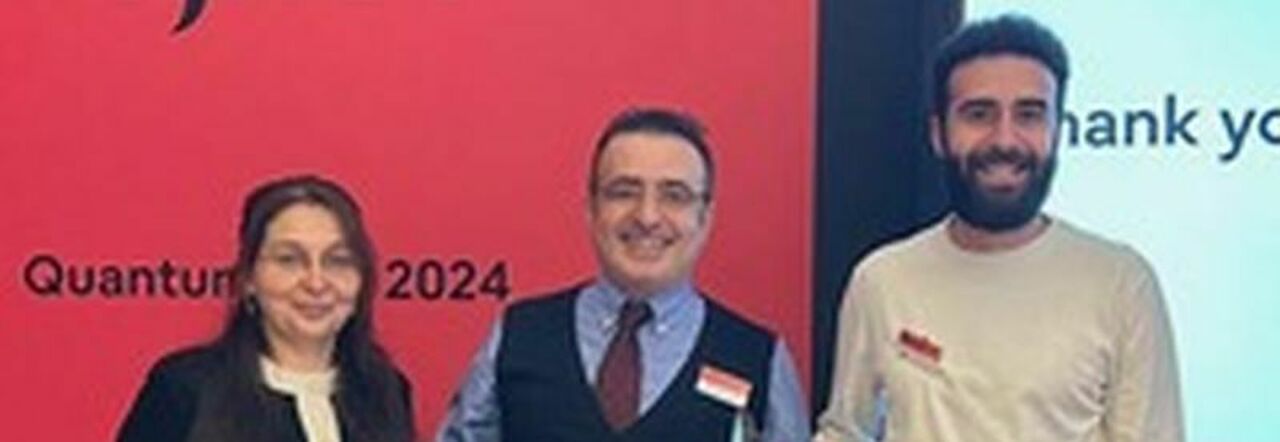At the Federico II, the prize of the Fujitsu Quantum simulator challenge was awarded. Four winning teams, the Federico II team is the only academic team to have been awarded. The research group that won the prestigious recognition is from Professor Giovanni Acampora, composed of Roberto Schiattarella and Autilia Vitiello from the physics department "Ettore Pancini" of the Neapolitan university.
The theme of the winning project: the use of artificial intelligence and quantum computers to design and build the smart cities of the future.
The Fujitsu quantum simulator challenge is a global competition in which the Japanese multinational invited members of the industry and the academic world to use and test a high-performance quantum simulator in solving complex problems and developing innovative applications.
In this context, the Neapolitan researchers succeeded in designing and implementing the first quantum algorithm capable of monitoring and controlling various aspects of a smart city, such as, for example, traffic light systems and air conditioning systems, in an efficient and interpretable way, creating one of the first practical applications and high social impact of quantum computation. This feat takes on an even more significant meaning considering the current context of quantum computers, which are still in an embryonic state of development.
And, in a landscape where quantum computing is in the exploration and experimentation phase, the result of the Neapolitan researchers emerges as a real avant-garde, clearly indicating the leadership of the Federico II University in the creation and practical application of quantum algorithms for artificial intelligence.
"The result achieved is a further demonstration of the excellence achieved by the areas of physics, engineering and computer science of our university in the development of quantum technologies in the context of computation, communication and hardware development, and places Federico II in a leading position with respect to future government, national and regional development strategies, which will be launched in the field of quantum technologies," comments Professor Acampora.
The quantum algorithm of Federico II was implemented using the Fujitsu quantum simulator, and the experiments required about 1500 hours of computation. The Federico II team challenged 43 international research groups, divided between startups and academic institutions, from 17 different countries. Among these, 20 groups passed the first selection process in which Fujitsu evaluated the use cases of the candidates in relation to their innovation and how they exploited the computational capabilities of the quantum simulator. Participants spent a total of about 56000 hours using the quantum simulator during the challenge and created various use cases ranging from basic research results, including error correction technology, to the development of algorithms that contribute to solving societal problems. After the operational phase, the participating teams presented a report on the results of their research and, based on these results, the award committee composed of 13 members, including researchers from the Fujitsu quantum laboratory, identified four winning teams, including the University of Naples Federico II, the only academic group to have been awarded.

